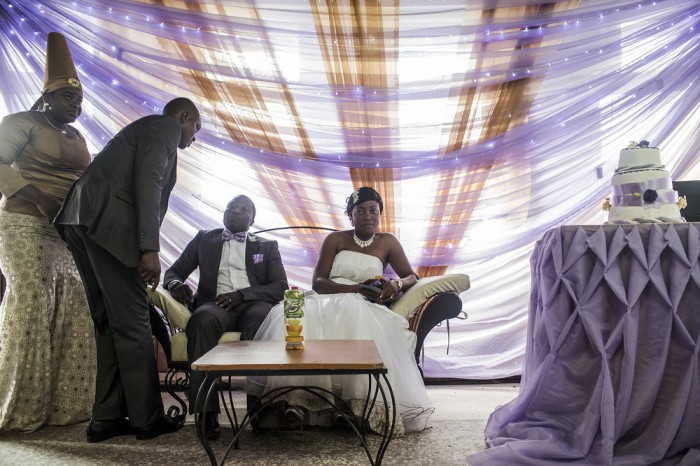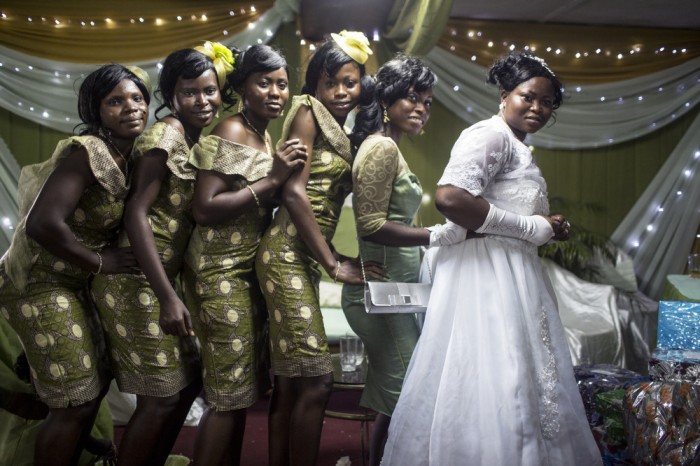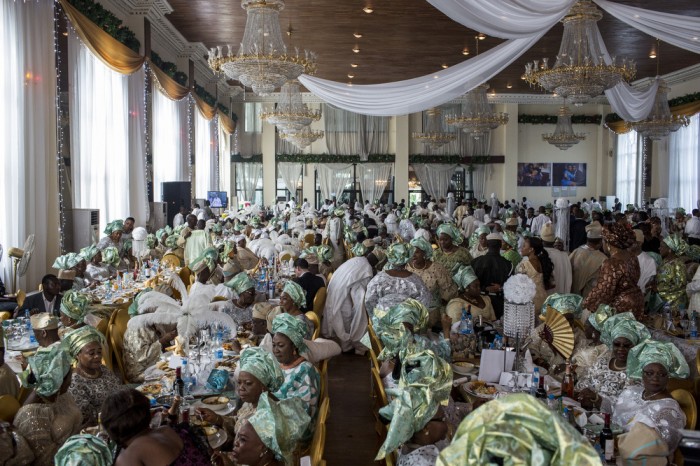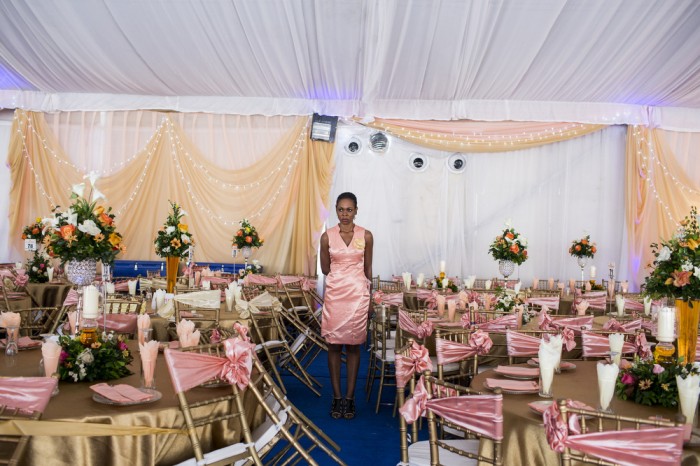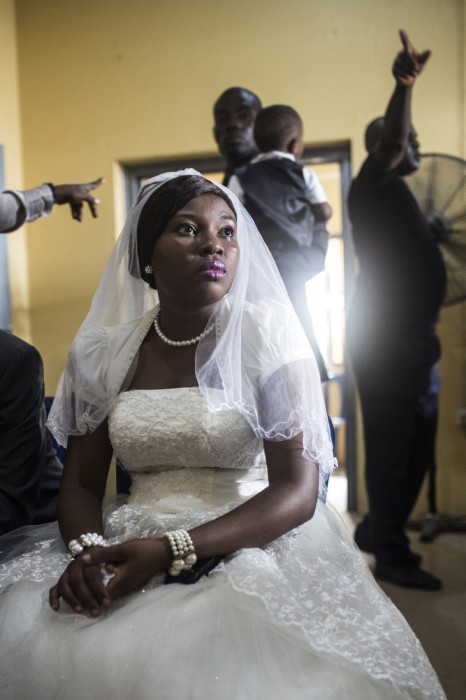Naija Wedding
-
PhotographerGlenna Gordon, United States
-
Studiofreelance photographer
“Since when has the success of weddings been measured by how many governors attend?” Ifemelu asked.
“Me, I want as many governors as possible to come to my own wedding o. It shows levels, serious levels,”Ranyinudo said.
“You do not marry the man you love. You marry the man who can best maintain you.”
-Americanah, Chimanada Ngozi Adichie
All around the world, everyone goes broke getting hitched. In Nigeria, it’s a day that signals alliances of families and the start of an economic union. And sometimes love too.
In the biggest country in Africa, someone is always getting married. And no matter how much money the couple and their families have – rich, poor, and in between – weddings always involve spending at the upper limits of budgets.
Weddings in Nigeria are not private affairs – they are public displays. The music is loud; the jollof rice is always plentiful and the event goes on for hours. Everyone is invited, and even those who aren’t come anyway
Lagos is home to anywhere form 15 million to 30 million people, and one in every five Africans is Nigerian. The value added annually from this wealthy oil-producing nation makes it the biggest country in Africa by many measures. Weddings can cost hundreds of thousands or even millions of Naira, the Nigerian currency. Money trickles down from Oil and Gas; the best jobs are government jobs; and the rich here are richer than most people outside of Nigeria could ever imagine.
Naija Wedding is about what it costs to get married in Nigeria: what money can and can’t buy, as well as the real costs to families and individuals, visible in the few quiet moments amidst frenzied ceremony.
Photography is my means of discovering the world is infinitely more interesting than I ever could have imagined: I’ve crashed dozens of Nigerian weddings and seen the scale of wealth in Africa’s biggest economy. I’ve met Muslim women who write romance novels in the rapidly Islamicizing Sahel who have radically changed my idea of what it means to wear a hijab. I’ve learned that the heroes we canonize are just as flawed as our enemies are human.
My work has been commissioned by and featured in the Wall Street Journal, Time, Newsweek, NYT Lens, and elsewhere. My documentary work has been featured on National Geographic’s Proof, New York Times Lens Blog, Time’s Lightbox, New Yorker’s Photobooth, Wired’s Raw File
My work has been recognized by American Photo 30, PDN Annual 2013, Flash Forward 12 and 13, the International Photography Awards, FotoweekDC, and more. I’ve done a residency at the African Artist Foundation in Lagos, Nigeria, and been awards a grant by the Pulitzer Center for work in Liberia. My images have been show in galleries and screenings in New York, Los Angeles, Washington DC, Lagos, Istanbul, Milan, and other places.
In addition to my work as a photographer, I am also a lecturer at the Milano School of International Affairs at the New School in New York.
Awards 2013 Flash Forward 12: Emerging Photographers, Winner
Photo District News Annual: 2013 Winner for Personal Project
2012 African Artists Foundation, Residency in Lagos, Nigeria
Critical Mass, Photo Lucida, Finalist
International Photography Awards, Lucie Foundation, Honorable Mention
2011 FotoWeekDC, Second Place in Photojournalism and Social Documentary, Washington DC
2009 Pulitzer Center Grant for Crisis Reporting, Justice Renewed in Liberia
2006 Columbia University Nona Balakian Award for Master’s thesis on women in publishing
Writer’s Colony at Dairy Hollow, Residency in Eureka Springs, Arkansas
